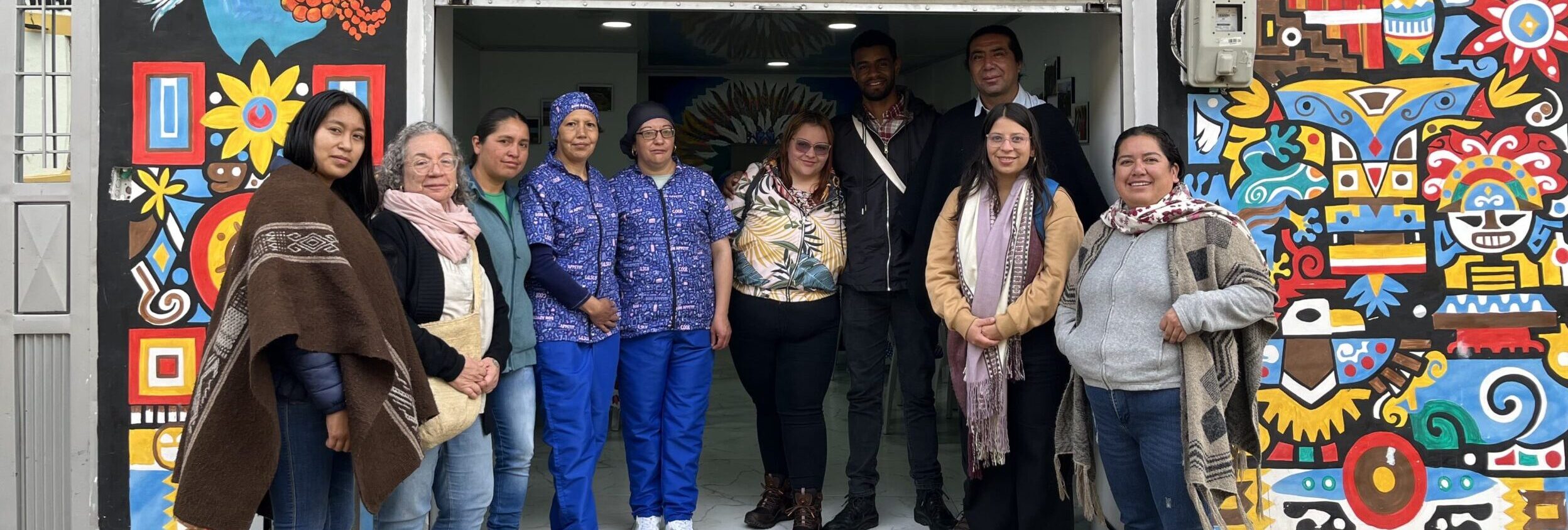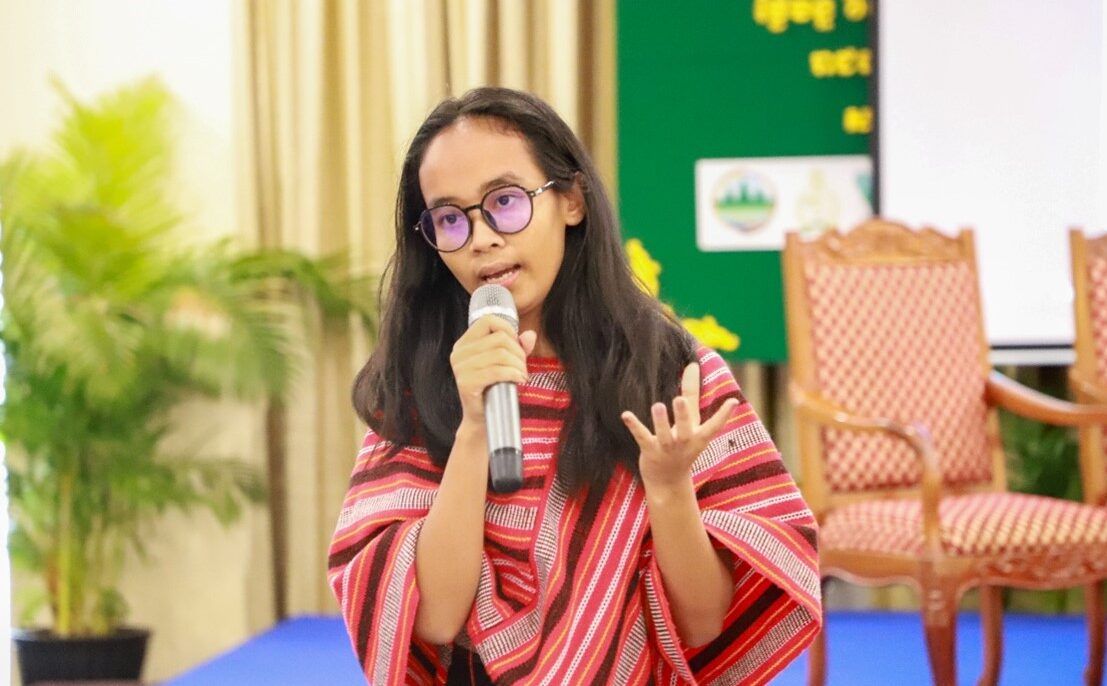Embedding GEDSI: Strengthening Inclusive Biodiversity Action
By 2027, the Global Centre on Biodiversity for Climate (GCBC) has committed to ensuring its funded projects deliver GEDSI (Gender Equality, Disability, and Social Inclusion) -empowering outcomes, where marginalised voices are enabled to participate meaningfully, influence decisions, and strengthen their leadership in biodiversity and climate action.
This is an ambitious yet urgent goal. Achieving GEDSI empowering outcomes will require moving from inclusion as principle to inclusion as practice. But what will it take for GCBC to deliver on this commitment, and what does truly empowering GEDSI action in biodiversity and climate research look like?




The Challenge
Historically, efforts to address climate change and biodiversity loss have focused on protecting species and habitats, often at the expense of recognising the needs and rights of women, girls, and Indigenous Peoples and local communities. Despite often holding deep relationships with the land, particularly in biodiversity-rich regions, these groups are frequently underrepresented in decision-making and often excluded from the benefits of conservation. This exclusion is not only unjust; it also undermines the resilience of ecosystems and the communities that depend on them.
While interest in GEDSI within biodiversity programming is growing, most research projects do not yet fully integrate inclusive design and outcome measurement. At a time when recent aid cuts have further weakened support for projects that prioritise the voices and wellbeing of marginalised groups, sustained investment in inclusive approaches is more critical than ever.
Inclusive Biodiversity: GCBC Case Studies
In many regions, GCBC projects are already actively advancing GEDSI through meaningful community engagement, gender-responsive capacity building, and the amplification of Indigenous and local knowledge systems.
In Ethiopia, for example, agroforestry initiatives led by the International Centre for Research in Agroforestry (Multifunctional Agroforestry for Ethiopia) are empowering female farmer leaders through the creation of safe spaces and the delivery of women-only training. In Peru and Ecuador, the International Potato Center (Andean Crop Diversity for Climate Change) is promoting the leadership of women and youth by recognising ‘seed guardians’ and using photovoice storytelling to strengthen cultural identity and community ties.
A strong emphasis on inclusive research design and knowledge co-creation runs across many GCBC initiatives. In Cambodia, Indigenous women are receiving ethics training from the Wildlife Conservation Society (SARIKA: Scientific Action Research for Indigenous Knowledge Advancement) to lead biodiversity conservation efforts, while in Ghana and Tanzania, institutions like the University of Education, Winneba (ILWGAWS: Integrated Land and Water Management of the Greater Amanzule Wetland System) and the International Institute of Environment and Development (Nature Nurture) are applying participatory mapping and locally tailored co-creation practices that elevate community voices and agency.
However, GEDSI-empowering projects go beyond engaging marginalised groups and women, they actively work to transform lives. In Colombia, for example, CIASE (Gran Tescual Indigenous Reservation Climate Plan) is driving intergenerational, gender-focused climate education through the Escuela Viva (Living School) while simultaneously empowering women through the growth of bio-collective enterprises. In Ecuador’s Pastaza region, Universidad Técnica Particular de Loja (UTLP) (BIOAMAZ: Realising the potential of plant bioresources as new economic opportunities for the Ecuadorian Amazon) is building local capacity in biodiversity management, from sustainable practices to essential oil production, with the dual goal of improving livelihoods and amplifying women’s and Indigenous leadership.
From Commitment to Action
However, some GCBC projects are still at an early stage of engaging with GEDSI, and the programme is strengthening its efforts to ensure the principles are embedded across all projects and partnerships.
To do this, GCBC is advancing its Theory of Change, adopting consistent terminology, and providing clearer GEDSI guidance for grantees. This guidance is supported by new self-assessment and action planning tools that encourage grantees to reflect on five core areas:
-
- Project design
- Engagement
- Monitoring
- Team capacity
- Safeguarding
These exercises are complemented by webinars, and tailored support provided through GCBC’s Technical Assistance Facility (TAF). One such TAF intervention is currently helping a team embed inclusivity, local knowledge, and equitable benefit sharing into their restoration and governance efforts, whilst another is focused on building capacity for monitoring and evaluation specialists to better integrate GEDSI into project data and reporting.
As projects evolve and findings emerge, grantees will also be assisted in implementing inclusive dissemination activities that both reach and elevate marginalised voices. Updated programme materials will include dedicated GEDSI guidance, with action plans outlining specific activities, intended outcomes, delivery methods, and measures of impact. Together, these efforts are designed to move the programme beyond intent to impact, laying the foundation for more equitable, inclusive, and sustainable biodiversity outcomes.
Building on these efforts and the Wilton Park dialogue (Transformative Change for Global Biodiversity: The Role of Gender Equality and Social Inclusion, which gave rise to the Principles for Inclusive Nature Action, GCBC is preparing to launch a new Inclusive Nature Action Community of Practice. This platform will bring together partners and organisations across the network to share innovations and address common challenges at the intersection of nature and inclusion.
For more on the Principles for Inclusive Nature Action, including their origins and development, see Principles for Inclusive Nature Action: Driving gender-responsive, locally-led, rights-based approaches to sustainably using, protecting and restoring global biodiversity.
This first collaborative Community of Practice, led by Dr Jamie Carr, University of York, is investigating the challenges, trade-offs, and co-benefits of inclusive, gender-responsive, and locally led biodiversity action. This research aims to generate practical insights for implementers and donors alike.
As the conservation movement embraces the need for greater equality and inclusion, the research community has a vital role in generating the evidence needed to navigate complexity and drive transformative change.
Dr Jamie Carr, University of York
Looking Ahead
We’ll continue to share stories and learning from across GCBC projects that show what inclusive nature action looks like in practice, and we welcome examples, thoughts and ideas from others doing the same. Together, we can shape a more inclusive and impactful future for biodiversity.


